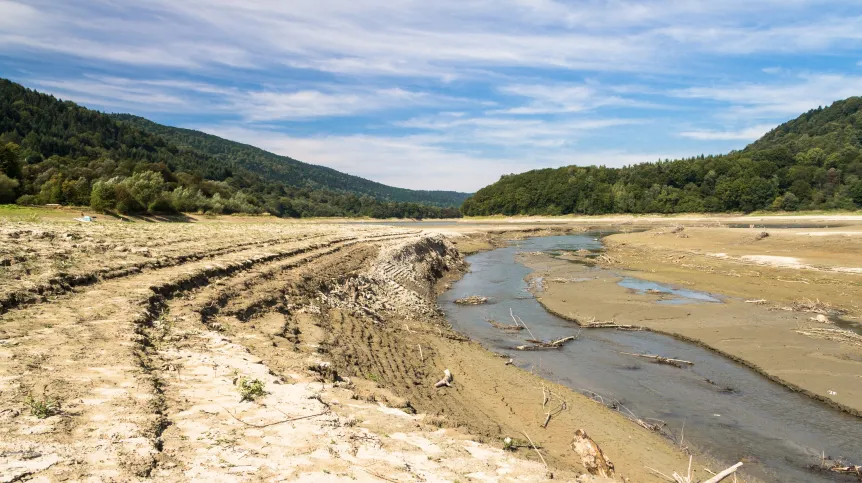
2024 was a record-breakingly warm year, but everything indicates that this record will be broken soon, says Bogdan Chojnicki, PhD, a professor and climate scientist from the Poznań University of Life Sciences. In his opinion, the increase in average temperatures will cause a serious drought in Poland within a few years.
According to the EU's Copernicus Climate Change Service, November 2024 was the second warmest November (after November 2023) in history. According to the December publication, it is almost certain that 2024 was the warmest year on record, and the average temperature on the globe exceeded the threshold of 1.5 degrees Celsius above the pre-industrial average, as set in the Paris Agreement.
In an interview with PAP, Bogdan Chojnicki, PhD, a professor from the Bioclimatology Laboratory of the Poznań University of Life Sciences points out that 2024 will definitely be remembered as the warmest year in the history of measurements. 'The question remains, of course, for how long, because last year's temperature is part of a very rapid, temperature increase trend in Poland and around the world. 2024 was a record-breakingly warm year, but everything indicates that this record will be broken soon', he believes.
The scientist points out that the last record for the highest annual temperature in Poland was broken in 2019, when the annual anomaly, i.e. the excess in relation to the reference value, was 1.52 degrees Celsius. 'The year 2024 ends with an anomaly of 2.25 degrees Celsius, which means that the previous highest temperature record was broken after only five years. The temperature is rising very quickly', Chojnicki emphasises.
The climate scientist draws attention to last year's flood in south-western Poland. 'At the same time, we recorded very low water levels in the Vistula. This is another record, one that is rarely talked about. In 2024, the water level in the Vistula was lower than in 2015, when the water level in this river was the lowest in history', the scientist adds.
'In principle, 2024 was a year of huge contrasts. Of course, as a society, we no longer remember these contrasts. Please remember that the year began with a warm and rainy winter. However, what happened later, in April, was an absolute temperature record in Poland. The summer was not that so warm - June and July were basically normal, although there were also record-breakingly hot days; however, there was also heavy rainfall', the climate scientist says.
The researcher believes that many people will remember the past year as warm but rainy due to summer rainfall. 'Meanwhile, both at the end of August and at the beginning of September, we recorded eight days with record high temperatures. When it stopped raining, high temperatures appeared', he reminds.
Chojnicki emphasises that the increase in average temperature results in extremely intense rainfall during periods of high air humidity, and a quickly felt drought after the rain stops.
'In the future, average temperatures will continue to rise, and remember that Poland does not always have wet summers. Sooner or later, the rising temperature will bring a very severe drought. I do not know if it will happen in 2025, but we will definitely experience a period with a serious water shortages in the next few years', he says.
When asked about the effects of climate change felt in Poland, the scientist points out that the situation in our country fits very well into the general situation in the world.
'The northern Atlantic Ocean is still very warm and not colder than last year. It is often said that the oceans are such a strong part of the climate system regulation that they will +fix what humans have broken+. Well, that is not going to happen, because the oceans are getting warmer and their temperature clearly does not want to drop. And this changes the climate reality all over the globe', he says.
The scientist points out that in 2025 we should expect less solar activity, but in his opinion this will not change the global average temperature increase. 'Please remember that one of the record warm years was 2018, when the Sun was in a phase of reduced activity, which did not prevent record high temperatures on Earth', he says.
Bogdan Chojnicki reminds that in 2024, the growing season began about a month earlier than usual. In this context, the scientist is concerned about the possibility of adapting various plant species - both those grown in agriculture and trees - to the unstable climate situation. 'This is a great challenge emerging on the horizon', he says. (PAP)
szk/ bar/ mow/













